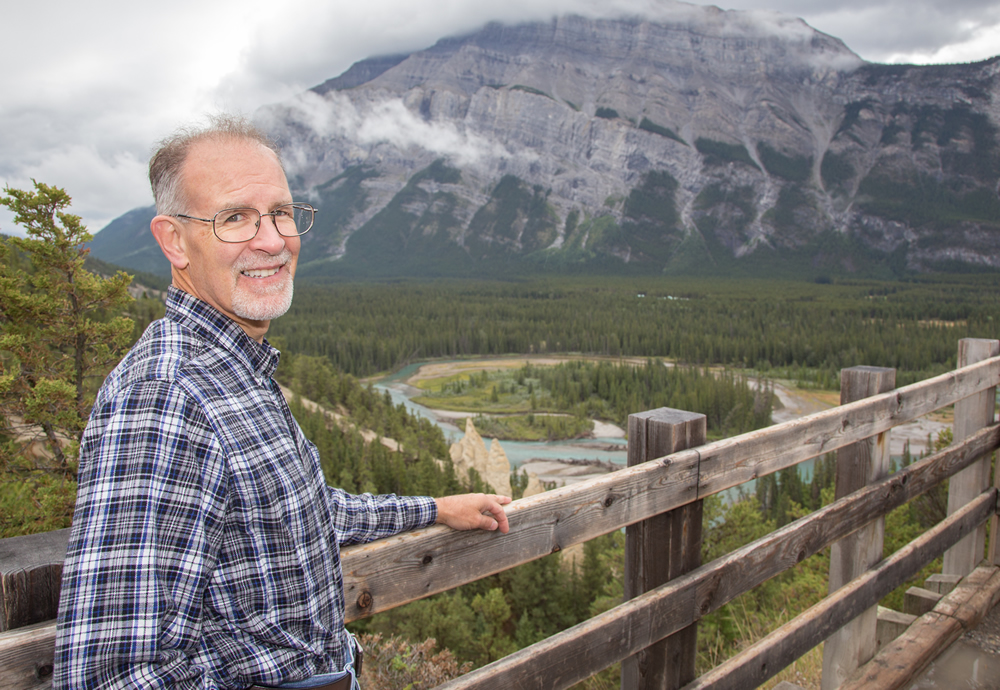Finding Support When You Don't Have Cancer

Cancer patient. Cancer survivor. Kevin Myers is neither.
Yet in his 58 years, hardly a day has passed that has not been affected by the disease.
Kevin Myers was born with a genetic predisposition to colon cancer. His condition, Familial Adenomatous Polyposis or FAP, is one of a number of inherited colon cancer syndromes, including Lynch Syndrome and MYH-associated polyposis (MAP).
"About 3 percent of colon cancers are associated with these genetic syndromes," explains Elena Stoffel, M.D., director of the U-M Cancer Genetics Clinic. "In patients with FAP, polyps develop in the colon as soon as early adolescence, numbering in the hundreds or even thousands. Without treatment, their risk of developing cancer exceeds 90 percent."
The alternative for most patients is just as overwhelming: the removal of the colon and life with an ostomy pouch. Myers' colon was removed at age 14. Learning to live with an ileostomy made Myers' youth especially tough, but he persevered through high school, college and graduate school, where he trained in social work and counseling, and where he met and married Brenda, his wife of 33 years.
"Over the years, I've grown from considering my condition a curse to seeing it as an opportunity to 'make lemonade out of lemons,'" he says.
To avoid passing on the FAP gene, the Myers' pursued in vitro fertilization, giving birth to their daughter in 1995.
BE THE CHANGE YOU WISH TO SEE
~Kevin Myers
People living with these genetic syndromes are all-too-often isolated and marginalized. This was Myers' reality until a self-described "light bulb moment" in 2014. As Myers tells it, "I enrolled in a clinical trial at the cancer center. Speaking with the study coordinator, I wondered aloud if there was such a thing as a support group for people like me. My search began on that day."
While people diagnosed with cancer have access to a wealth of resources, support and peer connections, there are far fewer options for those living with hereditary syndromes like FAP. When he found no existing support network, Myers decided to take up the challenge and, as the saying goes, "be the change you wish to see." It took nearly a year, but he realized his dream last May when about 20 patients and family members joined him for the first educational meeting of the group.
MYERS' TIPS FOR FINDING OR CREATING A SUPPORT NETWORK
Start online. Connect with patients on social media. See what group activities are offered in other communities and find out how they got started.
- It takes a village. Myers reached out to the Hereditary Colon Cancer Foundation in Park City, Utah, for guidance and best practices, the U-M Rogel Cancer Center for a speaker (Stoffel) and the Ann Arbor Cancer Support Community for a meeting location.
- Be patient. Although it didn't happen overnight, for Myers, the experience did not disappoint. "Connecting with people who really understand feels like coming home," he says. "And knowing that my experience might help someone else has made it all worthwhile."
Read the Fall, 2015 issue of Thrive.
Learn more about living with an inherited cancer risk:
- Family genetic counseling can identify children at risk for cancer
- Hereditary Colon Cancer Syndromes
A Q&A with Elena Stoffel, M.D., director of cancer genetics at the U-M Comprehensive Cancer Center - Trust Your Instincts
How one patient tracked her family's history of cancer - The PROMPT Registry
